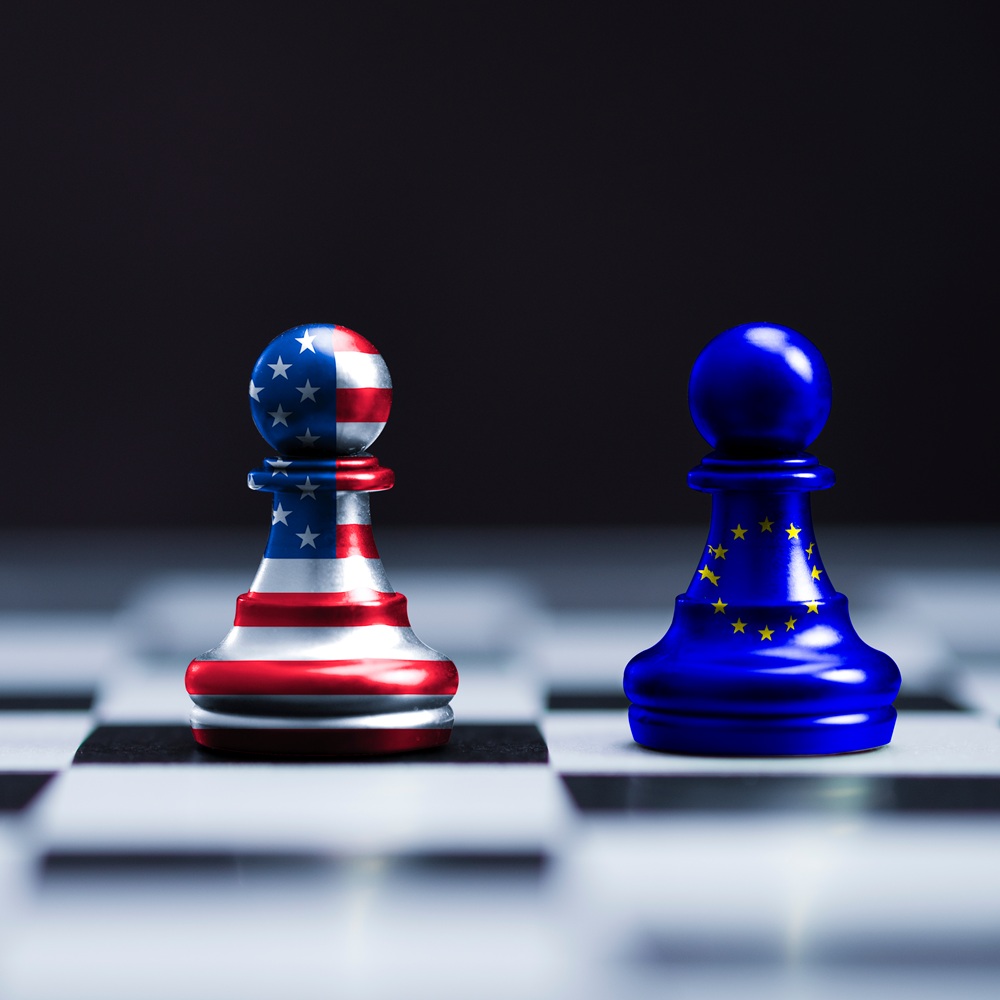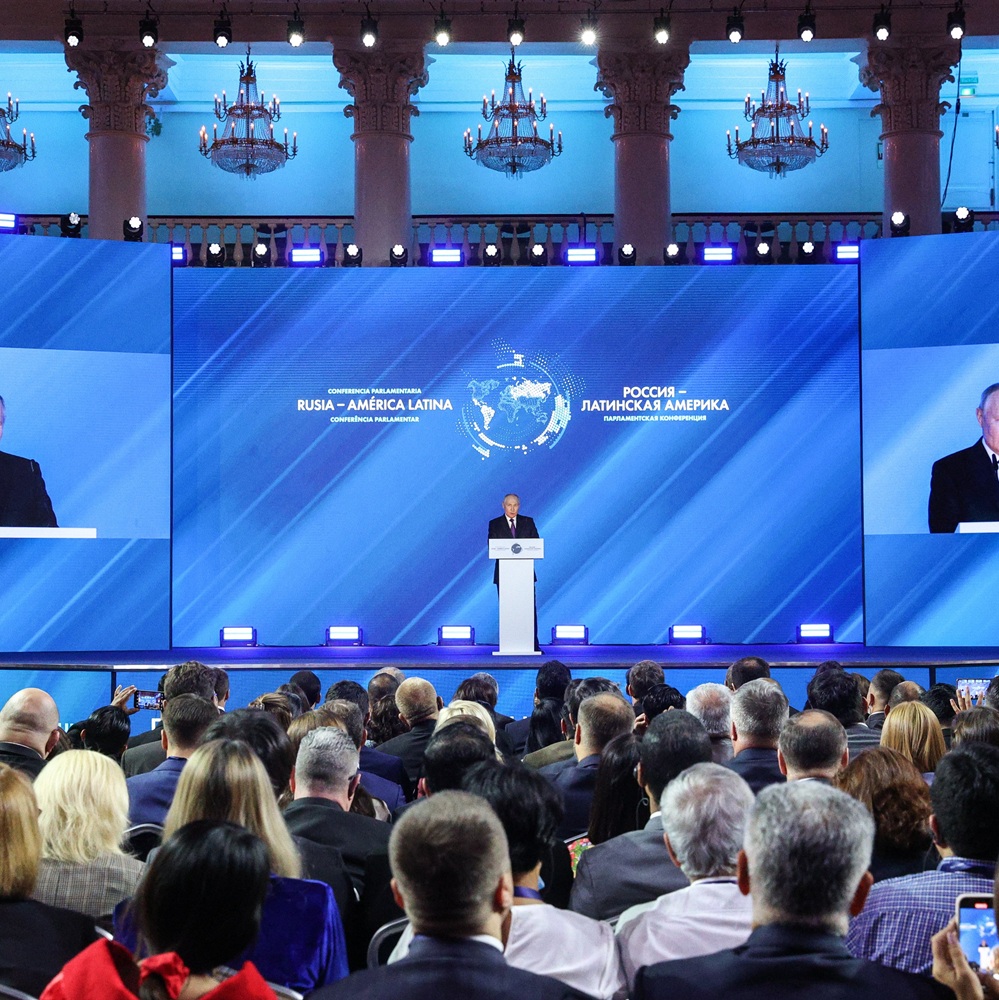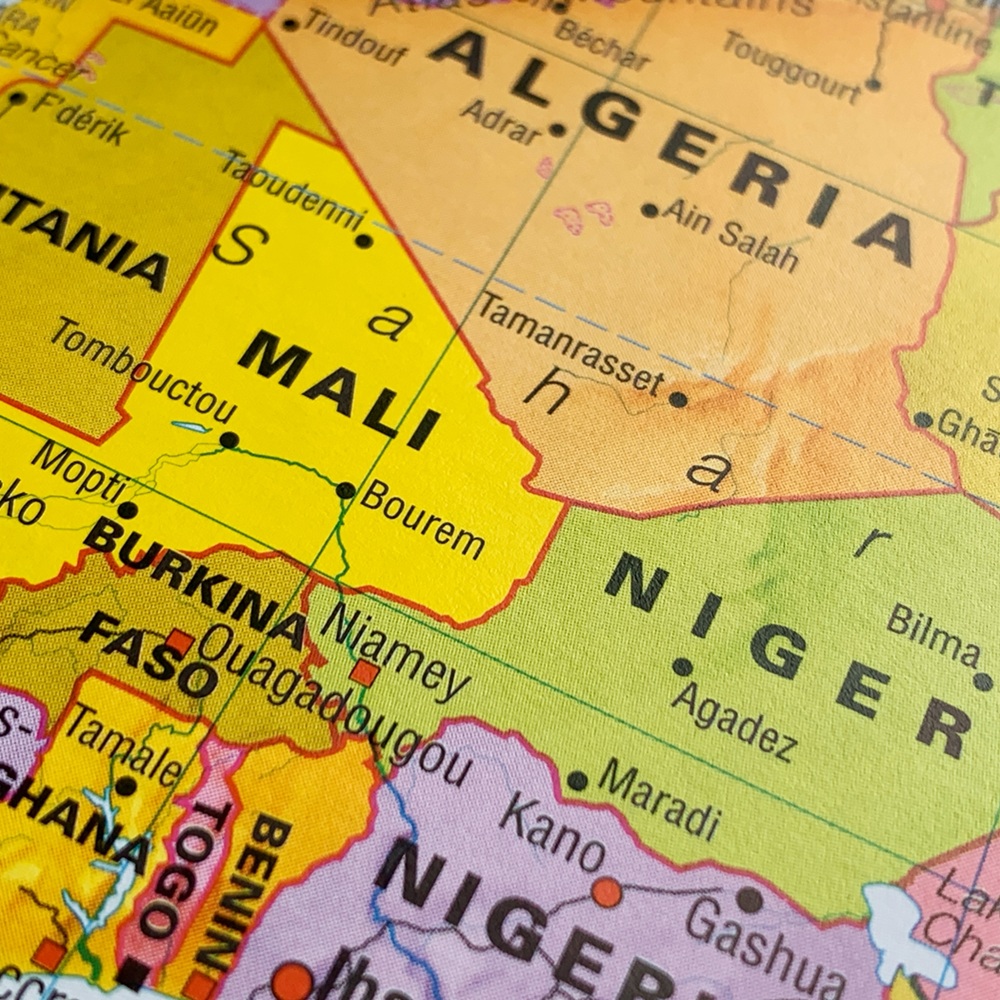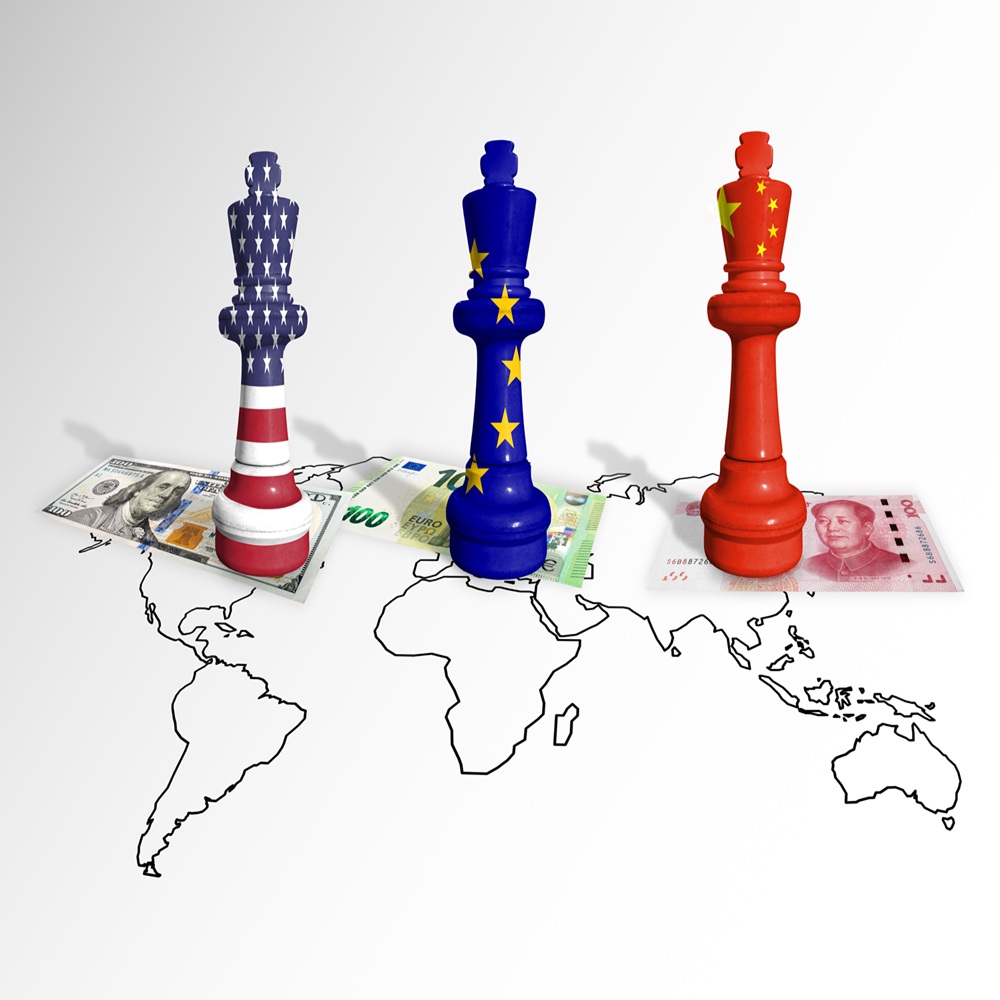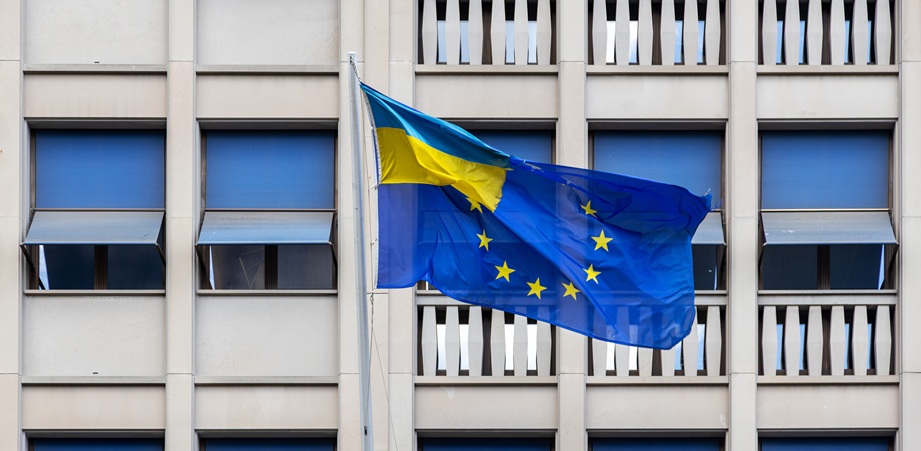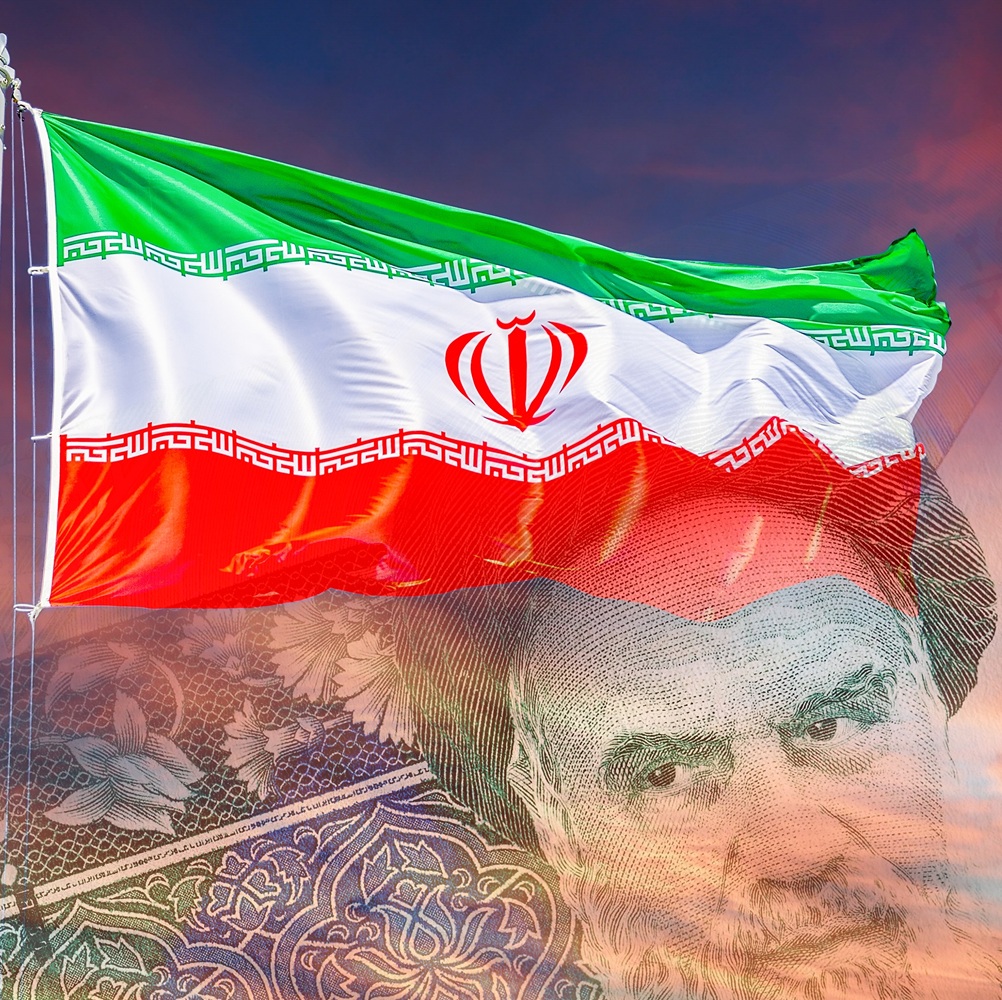
The Europe–Canada Schicksalsgemeinschaft: Transatlantic interdependency in the new North Atlantic triangle
by Christian Leuprecht
Abstract Buffeted by the headwinds of US unilateralism, Europeans and Canadians are bound together in a community of fate. As the US departs the field, Europe and Canada need to cooperate more. To avoid being abandoned, they need to avail themselves of Atlanticist power for mutual benefit. Rather than merely protecting a liberal–democratic zone of peace across the Western hemisphere, Europe and Canada need to project the power of the transatlantic security community to deter Russia from using war to precipitate a multipolar world order in which it becomes a global player. This article draws on the metaphor of transatlantic relations as a triangle: with the US, Europe and Canada at its angles. Canada is in an existentially precarious position: a more autonomous Europe would make Canada even more dependent on the American hegemon, which would heighten Canada’s risk of being absorbed by the US. Although that outcome is not in Europe’s interest, Europe and Canada have been disengaging for decades. Reversing this trajectory would come at a significant military cost but would be a political gain that would be difficult to measure, resulting in cooperation on energy security, critical minerals, defence and defence in depth. Yet, to achieve this strategic counterbalance, Europe and Canada need to protect abiding security and political interests: to keep the US in Europe and to keep the Russians out. KeywordsCanada, Europe, EU, Euro-Atlantic community, US, NATO, Energy security, Defence, Defence in depth, Transatlantic relations, Structural realism Introduction ‘Europe and Canada are trusted friends and partners. Today this relationship is more critical than ever. I look forward to working with you to defend democracy, free and fair trade, and our shared values’ (von der Leyen 2025). The words of the president of the European Commission, on the swearing in of Canadian Prime Minister Mark Carney, identify Europe’s common priorities with the ‘most European of non-European countries’. The words reinforce a reinvigorated Schicksalsgemeinschaft, a German term that denotes a community with a common fate. After decades of distraction by ‘Asia-Pacific’ imaginaries, Europe and Canada are rediscovering the inevitability of their common fate, in the Euro-Atlantic community. Traditionally, the North Atlantic triangle has comprised an Atlanticist Anglosphere: the UK, the US and Canada. This article instead draws on an age-old metaphor coined by celebrated Canadian historian John Bartlet Brebner (1966): a North Atlantic triangle that reflects transatlantic strategic and political cultures. The angles of this triangle consist of the US, Canada and Europe writ large, as manifest in but not limited to the EU. Europe and Canada share a common strategic fate that makes them interdependent. Both stand to benefit from cultivating their relationship, while both stand to lose should Canada become even more dependent on the US. Canada’s strategic amnesia is manifest in its having forgotten the lesson of leveraging Europe to hedge against the uncertainties of US unilateralism. This is reminiscent of what Brebner called the ‘bookkeeper’s puzzle’: how can Canada best manage relations with both the UK and the US so as (a) to be able to invoke the assistance of the former against the latter’s political (and perhaps military) pressure, while at same time (b) ensuring that the British desire for an Anglo-American rapprochement does not result in any ‘sacrifice’ of Canadian interests? Historically, Canada had managed relations with the easternmost angle of the triangle, the UK, to assure its assistance against political (and possibly existential military) pressure from the US. At the same time, in the interests of its sovereignty, Canada wanted to ensure that any rapprochement with the UK would not end up sacrificing Canadian interests. An offshoot of the bookkeeper’s puzzle applies to attempts by Canada to involve its allies from NATO in an expanded triangle to counterbalance the US politically and economically (Haglund 2025). The bookkeeper’s puzzle thus reflects a real fear of abandonment: in Canada of being abandoned by Europe, and in Europe of being abandoned by the US. The key to the puzzle is for Canada and Europe to retrench and harness their interdependence. But that is easier said than done, due in part to free trade with the US, which has reinforced the shift of Canada’s organisational focus from east–west to north–south. The new North Atlantic triangle Since the founding of NATO in 1949, European countries and Canada have come to depend disproportionately on the world’s largest defence and intelligence complex for their security and have had the world’s largest economy as their primary trading partner. The US shored up its Atlantic and Pacific rims by design: a favourable trading relationship with the US allowed Europe to prosper, while the US guaranteed and underwrote Europe’s security against the Soviet threat. With the end of the Cold War, however, European allies opted to reduce their defence posture significantly. By contrast, since the end of the Cold War, the US has invested US$500 billion per year more than Europe in defence (at today’s prices)—which comes to almost US$20 trillion more than Europe over 35 years. This explains why Europe depends on US capability—especially in cyber, space and intelligence. The US feels that this came at its expense: 64% of European defence is still underwritten by the US (NATO 2025), up from 52% over the past decade, nothingstanding NATO members’ 2014 Wales summit pledge to spend more on defence. Why are 340 million Americans defending 450 million Europeans? Moreover, the US perceives those allies as benefiting from asymmetric trade relations, which the Trump administration considers to be to the detriment of the US. That is, European allies have failed to heed the first purpose of NATO which, in the infamous words of its first secretary general, Lord Ismay, is ‘to keep the Americans in Europe’ (Rodman 1995). To keep ‘the Russians out’ of Europe is the second purpose Lord Ismay sets out for NATO (Rodman 1995). In line with Article 5 of NATO’s founding charter (North Atlantic Treaty 1949, art. 5), allies rely on the US as the guarantor to deter Russia from its ambition of becoming a global player in a multipolar world order, which Russia is prepared to bring about by force. France and the UK notwithstanding, only the US has the nuclear triad and second-strike capability to ensure credible extended nuclear deterrence. However, two world wars and the Cold War have shown that Europe needs Canada for defence in depth. The usual connotation of this military strategy is to contain a bad actor that has breached a layer of defence by providing a second layer of defence. In this case, it refers to Canadian territory as being a safe and like-minded industrial hinterland for resources and an industrial base for Europe to rely on in times of war, as it did during the world wars. During these, Canada provided surge capacity and defence in depth from day one, long before the US ultimately joined in. In both cases, Canada’s reliable contribution changed the outcome of the war: the Second World War might have turned out quite differently had Canada not helped the UK hold down the island fort. Along with prevailing historical, ethno-cultural, political and economic ties, Canada and Europe share geostrategic interests: in the Arctic with the Nordic countries, and in the Atlantic rim with the UK, France, Spain and Portugal. Although Canada is disproportionately exposed to the consequences of US unilateralism, for Canada, leveraging European power to counterbalance the US is controversial (Haglund 1999). Canada’s changing demographics and trade relationships have oriented Canada away from Europe as the obvious ally and partner in safeguarding Canadian sovereignty. Conversely, Europe has an interest in using its power to assure Canada’s independence so as to limit the latter’s potential overexposure to the hegemonic impulses of the American empire: given the size of Canada’s economy and population, US leverage over Canadian natural, economic and human resources would increase America’s structural leverage, over Europe and the world, by about 10% over today’s American power. Such a situation would ensure its unrivalled status as the premier global superpower, which China alone could not match. In theory then, Canadian sovereignty depends on counterbalancing the US using European power. In practice, since the Second World War, both Canada and Europe have been drafting behind the US, deepening their economic and military reliance on the US, and shifting their strategic gaze away from a Euro-Atlantic community that they have taken for granted. Fixated on the US, both parties have seemingly suffered from amnesia about their bilateral transatlantic geostrategic interdependency. As US geostrategic interests increasingly diverge from those of the EU and Canada, and the US becomes more consumed with domestic (electoral) priorities and structural shifts in geopolitical gravity towards the Indo-Pacific, the relationship between Canada and Europe stands at a cross-roads. To counterbalance the power politics of an emboldened US, Russia and China, Europe and Canada need one another to preserve and uphold the liberal–democratic rules-based international order. This is especially true since the US’s pivot in geopolitical orientation, priorities and resource allocation towards the Indo-Pacific to disrupt an expansionist China that is intent on upending the prevailing international order. The US response to China has been to secure control over critical resources and geostrategic approaches that could render it vulnerable, while ensuring that it remains the world’s largest economy. On the one hand, eyeing natural resources and critical minerals in its proximate vicinity, notably Canada and Greenland, puts the US on a confrontational course with Europe and European interests. On the other, the US is ‘rebalancing’ away from Europe, the European neighbourhood and the Euro-Atlantic community as its priorities, and resources, shift to the Indo-Pacific. As a result, the US is expecting Europe to take on (far) greater responsibility for securing its own political interests and military backyard. In response, some European leaders, notably France, have continued to advocate for greater ‘strategic autonomy’ for Europe—an approach that drew the ire of the first Trump administration and is likely to aggravate Euro-Atlantic tensions—while others, notably Germany, have favoured chequebook diplomacy. This term describes the use of economic aid and investment as a means of attraction as part of soft-power projection (Leuprecht and Hamilton 2020). As the least powerful of the G7, Canada has neither luxury. Without European allies by its side, Canada runs an extreme risk of being left out in the geostrategic cold, with deleterious consequences for both Canada and the EU (Nossal 2023). Within the Euro-Atlantic community, the EU and Canada have not just suffered from mutual benign neglect. In the post–Cold War era, and especially with the advent of the Global War on Terror, Europe’s value to Canada has been declining steadily. Canada’s primary strategic relationship is naturally with the US, with which it shares a continent: co-located with the world’s largest economy, which a free trade agreement has made it ever more dependent on, Canada’s economy and security have become overly reliant on the US. The EU and the vast majority of its member states are also highly—arguably overly—dependent on the security and economic umbrella of the US. The supposed ‘peace dividend’ after the Cold War made NATO members even more dependent on the US. With so great an emphasis on their strategic relationships with the US, the perpendicular Canada–EU edge of the new North Atlantic triangle has never received much attention. What was a sin of omission, is now a sin of commission, by both parties. Friends, without benefits Reorienting Canada–Europe relations—as desirable as it may be—is a tall order. However intellectually appealing and geopolitically necessary, there are many obstacles. First, political leaders on both sides of the Atlantic have neither prioritised bilateral Euro–Canadian relations, nor really taken note of them, whether out of disinterest or because there was no pressing need: to date, 10 EU member countries still have not ratified the Canada–Europe Trade Agreement. In both the Old and the New World, long-term thinking in politics and society is a popular topic of discussion in the salons of the capital cities, but rarely reaches the offices of decision-makers and their advisers. In the end, the untapped potential for more vital, productive and politically successful relations between Canada and Europe is inversely proportional to the actual political will and capital that elites are willing to expend, especially relative to their interest in the US. Second, realignments in international relations require not only a strategic basis but also complementary apparatuses that are willing and able to action new strategic direction. This does not bode well for either Canada or the EU. The Canadian foreign service suffers from a vast backlog of reforms in terms of its structures, vision and mission, which is indicative of a broad decline in the efficiency, effectiveness and objectivity of the Canadian civil service (Savoie 2024) and the steady erosion of the ability of Canada’s federal government to manage civil society. Former Canadian Prime Minister Justin Trudeau’s Senate Reform resulted in the worst of both worlds: it further aggravated the struggle between Ottawa and the provinces over power and resources, and failed to generate greater capacity and interest in foreign and security policy in Canada’s upper chamber. The senators he appointed were preoccupied with domestic policy, and ideologically disinclined towards provincial rights. Recent foreign policy has resulted in six Canadian foreign ministers over the course of a decade; poor preparation and engagement by ministers who tout Canada’s ‘convening power’ but have little actual legitimacy to convene, let alone deliver; and two failed candidacies for a non-permanent seat on the UN Security Council. The foreign services of the EU and its member states, too, seem more preoccupied with themselves—notably with identity politics—than with playing a measurable, active role in shaping bilateral and multilateral external relations. In both the EU and Canada, the visibility and political effectiveness of foreign affairs instruments underperform: spending is unstructured and not optimised for strategic effect. Yet, both sides share a dogmatically defiant adherence to the legacy of a liberal rules-based international order. Indications of upheaval in the transatlantic relationship date back at least to President Obama’s ‘pivot’ to Asia. Realists posit the international system as anarchic, with states competing against one another and striving for survival. That world of power and interest-driven politics stands in increasingly stark contrast to Europe’s and Canada’s liberal institutionalist and values-driven approaches to the world. Third, for a realignment of the Canadian–European relationship at the political level, the impetus must not only originate from their respective civil societies, but also be accepted and actively legitimated in societies whose demographic composition is undergoing rapid change. Yet, legitimation deficits loom large. The EU’s view of the North American subcontinent remains wedded to the bilateral relationship with the US. At the same time, due to the slow implementation of the Canada–EU Trade Agreement, the potential for economic cooperation with EU institutions and member states remains largely unrealised, despite the fact that it has long been far easier for Canada and European allies to work together than for either to work with the US. For example, the extremely low international mobility rate of Canadian students, which is in the single digits, and the relatively few EU students who study in Canada, foreshadow a lack of future bilateral networks for emerging young leaders to tap into (European Commission 2020). Overly rigid certification standards in Canada for European university degrees impede broader student exchanges, labour mobility and more extensive knowledge transfer. Nevertheless, academic networks, that is, joint projects by non-governmental organisations from the EU dedicated to political cooperation with and in Canada, such as that fostered by the local EU delegation in Ottawa, portend positive developments: for example, the Jean Monnet Chairs and a centre that parlays European interest in Canadian universities, and the Europe Canada Network (EUCAnet) which facilitates transatlantic knowledge sharing among experts. Similarly, in the private sector, Canadian chief executives are in short supply in the EU, and potential candidates more often than not prefer to stay in their home country, the US or the Anglosphere, rather than invest in a transatlantic management career and the associated bilateral networks. The fourth obstacle is a direct result of the meagre transatlantic civil society: the prevailing images Canada and Europe have of one another one the one hand, and the failure to ‘bridge’ the transatlantic imaginary on the other. On the one side is Canada, the cosmopolitan, tolerant and fun subcontinent with bears, lakes, mountains and maple syrup, which—post-colonial realities notwithstanding—is considered by most Europeans to be the better North America and which, with its playful lightness, often manages to escape the critical gaze, and not only that of Europeans. On the other side is ‘Fortress’ Europe, with its sprawling bureaucracy, and myriad unmanageable regulations and trade barriers, which seemingly only feigns openness. Perception could not be further from reality. Foreign policy is driven by national interest, yet despite a trajectory of convergence among Euro–Canadian interests, especially of late, for the EU and European countries, Canada remains a low priority: Canada ranks about sixtieth in terms of priority across European states, well behind all the EU member states, and behind many other large and mid-sized powers around the world. Fifth, despite the intent to build closer ties, fundamentally different economic gravitational pulls on both sides persist: owing to bilateral free-trade agreements and globalisation, over the past 30 years, Canada has gradually become more dependent on the US, while the integrative benefits of the EU’s common market have reduced incentives for member states to invest in bilateral relations with Canada. Sobering foreign trade figures for the EU and European states with Canada hold little prospect of change in the foreseeable future: Canada barely cracks the top 10 of European export markets, whereas the EU is actually Canada’s second most important trading partner—but at barely a tenth of Canada’s trade with the US. Finally, if bilateral EU–Canada cooperation is to deepen, parliaments on both sides need to be more proactive and deliberate in transforming the relationship: while political executives, the European Commission and Canada’s government of the day set the agenda, it is the legislatures that legitimate and sustain it. The European Parliament maintains a permanent liaison office in Washington, DC as well as a European Public Law Organization in London and in every member state, but not in Ottawa. The Canada–Europe Parliamentary Association needs to fashion new formats to invigorate and promote relevant political projects among the Canadian, European and national parliaments, perhaps modelled on the robust array of activities undertaken by the NATO Parliamentary Assembly. Strategic friends, with benefits Its position in the new North Atlantic triangle makes Canada an attractive partner for Europe. Rich in natural resources and critical minerals, Canada has the potential to rank among the world’s most prosperous countries. Canada’s three largest export industries are oil, natural gas and agriculture, along with vast resources in potash (for fertiliser) and uranium (nuclear power). Were Canada to build more pipeline capacity to export hydrocarbons, it would have the potential to make Europe (much) more energy and critical-minerals secure, more competitive and prosperous by contributing to lower European energy prices, and less reliant on the US, the Middle East and Russia, especially for liquified natural gas. Canada has the third-largest oil reserves in the world, produces some of the cleanest natural gas and ranks among the world’s top five exporters of agri-food. Yet, Canada’s pipeline infrastructure is overly reliant on the US, which means Canada has to sell the bulk of its oil to the US at a 25% discount on world market prices. Bringing down European energy prices is the most important contribution Canada could be making in standing with Ukraine: Canada’s failure to export hydrocarbons to Europe keeps European energy prices high, which effectively amounts to Canada subsidising Russia’s war of aggression on Ukraine. Europe procures negligible amounts of Canadian oil via US facilities in the Gulf of Mexico, and Canada exports no liquified natural gas to Europe at all, despite Europe now procuring 120 billion cubic metres a year, about half of which comes from the US. Besides an abundance of natural resources and critical minerals, as well as cheap, clean electricity, Canada is also rich in human resources and other intangible assets: it has a concentration of data centres and artificial intelligence infrastructure, it is home to some of the best public universities in the world, it has a more diverse and younger demography than any European ally, and its immigration strategy has historically favoured high skillsets and education. As a result, Canada has long had the most tertiary-qualified workforce among OECD countries (OCED 2022). Although Canada shares common interests, institutions (such as the North American Aerospace Defence Command, NORAD), a continental identity and ideas with the US, as a Westminster parliamentary democracy, its values and political culture are closer to those of Europe than those of the US (Hataley and Leuprecht 2019). Moreover, as the only country that is a member of both the British Commonwealth and La Francophonie, Canada shares key cultural–linguistic attributes with both the UK and France: within the G7, Canada thus offers a counterweight to the Anglo-Saxon world. Europe also remains Canada’s second most important strategic partner, after the US. Owing to its experiences in the two world wars, Canada has a vested interest in Europe’s territorial integrity, political stability, economic prosperity and social harmony, with its like-minded European allies helping Canada to offset US unilateralist propensities. To that effect, NATO is a vital multilateral organisation for Canada; arguably, it is the most important, giving Canada a voice alongside 30 European allies and the US. Although it would be a mistake to equate counterbalancing the US with participation in NATO, Canada has a vested interest in sustaining and preserving NATO for the purpose of bandwagoning with European members to do just that (Jockel and Sokolsky 2021). For this reason, the Canadian Armed Forces has long been postured as an expeditionary organisation, with its primary orientation towards Europe. Via NATO’s external borders, Canada’s boundary with Russia stretches from its border with Alaska via a (disputed) Arctic maritime flank close to 1,000 km in length, to a 1,215 km land boundary in Northern, Central and Eastern Europe. Canada has thus sustained military commitments along much of the Russian flank. The pattern of Canada’s military deployments also shows that the country has vested interests in the Balkans, Europe’s southern flank, in the Mediterranean, the Middle East and North Africa. However, in recent decades, Canada has let its military atrophy to the point where it struggles to meet basic commitments—to NATO, to NORAD and to defending its own northern interests—let alone make new ones. Yet, the US pivot to the Indo-Pacific has created an opportunity for Canada to support US and European interests by backfilling some US capacity across Europe’s central, eastern and southern flanks, thus shoring up NATO, which is of benefit and interest to all member states. Were the EU to become a more independent defence actor, this would pose a serious risk to Canadian sovereignty and Canada’s standing in the world. In theory, Europe has the industrial base and financial capacity to provide for its own defence, security and survival. This, however, comes at a cost, for which European allies have thus far proven unable to muster the political will, although the European Commission’s $800 billion ReArm Europe plan holds promise that political will may be changing. The lack of will is cause for concern in the US, since Europe’s NATO allies have been sourcing about 60% of their arms from the US market. When France tried to take the initiative to achieve greater strategic autonomy for Europe during the first Trump presidency, Trump’s then NATO ambassador promptly dispatched an aggressive cease-and-desist letter (Leuprecht and Hamilton 2020). Although the US has resisted getting entangled in alliances since its first president, George Washington, NATO offers the US important levers. Nowhere in the world does the US invest proportionately less in defence for a higher rate of return. Canada and Europe are better positioned to add value to US military, political and strategic interests, than to try to go it alone individually. As Keohane (1988) famously observed, for the US, NATO is a very efficient and effective collective decision-making mechanism, gathering 30 European countries plus Canada—including some of the world’s top spenders on defence—the UK, Germany and France. Combined, the non-US NATO members spend about US$600 billion on defence (as compared to the US$877 billion by the US). The importance of NATO as an information-sharing and coordination mechanism has grown substantially since the formulation of NATO’s 2022 Strategic Concept, which brought key partners in the Indo-Pacific into the fold, including Australia, Japan, South Korea and New Zealand. Together, these allies and partners spent roughly US$1.7 trillion of a total global defence expenditure of about US$2.44 trillion in 2023. Of course, aggregate expenditures are an inchoate measure of military capability and commitment. While the US can necessarily exert greater pressure on any one country bilaterally, the benefits of NATO decision-making and coordination far outweigh the transaction costs for the US to do so bilaterally across three dozen countries. The reason the US spends as much as it does on its military is to preserve its freedom of action. Ultimately, being able to act unilaterally means never having to rely on others. Nonetheless, even though dispensable, allies are convenient to have as they also bring soft power, money and moral legitimacy. Greater European strategic autonomy is of little interest to the US, outside the NATO framework. The US does, however, have an interest in greater complementarity, capability and effectiveness within the organisation: it wants allies to do more together, on their own, provided they deconflict with the US. As the only other non-European NATO member country, Canada necessarily shares the transatlantic orientation of the US. Canada’s defence relations with Europe thus offer the US a mechanism to fall back on should the EU strive for greater strategic autonomy without coordinating with NATO and, therefore, with US interests. The lesson that the US drew from the Second World War was that, as a superpower, it has global interests. To this end, US unilateralism took on the trappings of a more multilateral approach to global affairs. The US collaborated with European partners and Canada to build the foundations of the post-war security, trade and monetary infrastructure: NATO, the General Agreement on Tariffs and Trade, and the Bretton Woods Accord (which laid the foundations for the International Monetary Fund and the World Bank). This strategic collaboration brought North America and (Western) Europe historically unprecedented security, prosperity and stability. Over time, however, both the European members of NATO and Canada have forgotten that, multilateral trappings aside, the arrangement was born primarily out of US interest. In the aftermath of the two world wars, the US learned that territorial integrity, political stability, collective prosperity and social harmony in and of Europe were in the best interests of its aspirations as a global superpower. The claim to superpower status depended on a degree of control over Europe. Russia has long understood this; the US came to this realisation in the twentieth century; and for a China with global ambitions, this is a relatively recent realisation. For the US, NATO and extended nuclear deterrence are the means to this end; which is why Russia is intent on upending NATO, as both Russia and China aspire to be global players in a multipolar world, rather than regional players under a Pax Americana. Although Canada does not have nuclear arms, its position in North America necessarily means it has a role in assuring extended nuclear deterrence. Russia’s strategic approaches to North America, by way of the Arctic, pass through Canadian airspace. Canada’s gradual commitment to and spending on Arctic security and defence, including NORAD, therefore, are not just about homeland defence, but are also an investment in NATO by means of continental defence writ large (Leuprecht et al. 2018). North American continental defence assures uncompromised latitude for sovereign decision-making in Washington as well as Ottawa. An adversary that can threaten North America with intercontinental ballistic missiles or hypersonic missiles, for instance, could effectively curtail sovereign decision-making that reflects the best interests and legitimate democratic will of Americans or Canadians. That is, an adversary could overtly threaten Ottawa or Washington with an attack if confronted with a political choice that runs counter to its interests. This matters all the more since North American continental security is the bedrock of credible extended nuclear deterrence. An adversary that is able to call the nuclear triad, and especially the second-strike capability, into question would effectively undermine the US security umbrella that spans the Atlantic and Pacific rims. The states that currently rely on US extended deterrence would thus have an incentive to resort to nuclear proliferation to ensure their own survival. Since nuclear proliferation runs counter to European and Canadian interests in regional and global stability, this is one more reason for them to be more strategic about coordinating their contribution to the triangle. Ostensibly, the US does not need Canada to provide North American continental defence: the US has the capacity, capabilities and resources to go it alone. However, cutting Canada out of North American strategic defence would significantly reduce NATO’s leverage over collective defence. Europe and European allies would be left to deal with the US alone; Canada’s currency on the continent and across the Atlantic would be greatly diminished. The coincidence of NATO’s pivot to North American Arctic defence and Obama’s pivot to the Indo-Pacific is no accident. Certainly, there is an operational requirement to coordinate with NORAD on an integrated all-domain layered Arctic defence along NATO’s entire frontier with Russia. But this change also highlighted that NATO is, first and foremost, a political—not a military—alliance. Obama’s pivot necessarily meant less US attention paid to, input and interest in NATO; thus, it was in NATO’s best interest to show the flag in America’s backyard. NATO has not one but three pillars: Europe, North America and the transatlantic area. How we imagine the third matters for how the US imagines NATO’s role in the Atlantic: either, as popularised by Walter Lippman (1917), as an ‘ocean highway’ that by geography, culture and necessity connects two continental ‘communities’; or, in a triumph of politics over geography, as theorised by Alan Henrikson (1980), as a ‘lake’ and ‘inland sea’ that unifies rather than divides. Within the North Atlantic triangle, Canada can bridge the divide of a vast ocean, making it into a much more manageable inland sea. Canada’s geographic continental co-location with the US gives Europe limited, but strategically indispensable, leverage beyond Washington through which to influence the second and third pillars of NATO, using defence and diplomacy to counter US unilateralist proclivities. Conclusion For Canada to become even more (over)dependent on the US than it already is runs fundamentally counter to European interests. The EU has a vested interest in Canada maintaining sovereign control over its resources, political decision-making and defence. Conversely, the prospect of greater European strategic autonomy in defence outside of the NATO framework poses a potentially existential risk to Canada, rendering it more dependent on the US, and thus reducing its value to allies and partners and, by extension, its standing in the world. If this were to happen, Canada would face much higher transaction costs more akin to those of its partners in the Indo-Pacific, having to invest a lot more in foreign policy and defence for greatly diminished returns. Canadian sovereignty is a Trump card that the US is now playing to maximise its power and range of unilateral action in a world where its hegemony is under threat. Europe and Canada used to be discretionary friends. Now is the time to realise mutual benefits for strategic effect. Canada can support Europe’s interests in energy security, critical minerals, defence and defence in depth. In return, the EU can bolster Canadian political and economic sovereignty. Partnering with the EU is also the most efficient and effective way for Canada to gain greater independence from the US in defence and defence-industrial capacity. Greater, more autonomous military-industrial capacity would enable both Canada and the EU to build sustainable capabilities and commit to collective defence. Such a strategy would have a dual signalling purpose: of military deterrence to Russia, and of political and economic deterrence to the US. Canada and the EU should not just protect but actually promote their military, political and economic interests. Failing to be strategic about collective transatlantic security and the Euro-Atlantic community within the new North American triangle increases the risk that Canada and Europe will be abandoned by the US. Lord Ismay had a premonition should Europe and Canada fail to shape their future: Russia in Europe, America out, under German leadership. ORCID iDChristian Leuprecht https://orcid.org/0000-0001-9498-4749ReferencesBrebner J. B. (1966). North Atlantic triangle: The interplay of Canada, the United States and Great Britain. Toronto: McClelland and Stewart.European Commission. (2020). ERASMUS+ for higher education in Canada. https://ec.europa.eu/assets/eac/erasmus-plus/factsheets/america-caribbean/canada_erasmusplus_2020.pdf. Accessed 20 March 2025.Haglund D. (1999). The North American triangle revisited: (Geo)political metaphor and the logic of Canadian foreign policy. American Review of Canadian Studies, 29(2), 211–35. Crossref.Haglund D. (2025). Brebner’s North Atlantic Triangle at 80: A (second) retrospective look at a retrospective book. London Journal of Canadian Studies, 31(1), 93–119. https://www.queensu.ca/politics/sites/polswww/files/uploaded_files/Selected%20Publications/LJCS%20Second%20Brebner%20Retrospective.pdf. Accessed 24 April 2025.Hataley T., Leuprecht C. (2019). Bilateral coordination of border security, intelligence sharing, counter-terrorism, and counter-radicalization. In Carment D., Sands C. (eds.), Canada–US relations: Sovereignty or shared institutions? (pp. 87–104). Basingstoke: Palgrave Macmillan. Crossref.Henrikson A. K. (1980). The geographical mental maps of American foreign policy makers. International Political Science Review, 1(4), 495–530. Crossref.Jockel J. J., Sokolsky J. J. (2021). Canada in NATO: 1949–2019. Montreal: McGill-Queen’s University Press. Crossref.Keohane R. (1988). Alliances, threats, and the uses of neorealism. International Security, 13(1), 169–76. Crossref.Leuprecht C., Hamilton R. (2020). New opportunities in common security and defence policy: Joining PESCO. In Chaban N., Knodt M. (eds.), ‘New opportunities for the Canada–EU strategic partnership’, Special issue, Australian and New Zealand Journal of European Studies, 11(3), 78–94. https://www.esaanz.org.au/wp-content/uploads/2020/02/Leuprecht_Hamilton-1.pdf. Accessed 23 April 2025.Leuprecht C., Sokolsky J. J., Hughes T. (2018). North American strategic defence in the 21st century: Security and sovereignty in an uncertain world. Cham: Springer. Crossref.Lippmann W. (1917). In Defence of the Atlantic World. The New Republic, 10(120), 59-61.North Atlantic Treaty. (1949). Washington, DC, 4 April 1949. UNTS 34, 243.NATO. (2025). The Secretary General’s annual report, 2024. https://www.nato.int/nato_static_fl2014/assets/pdf/2025/4/pdf/sgar24-en.pdf. Accessed 9 May 2025.Nossal K. R. (2023). Canada alone: Navigating the post-American world. Toronto: Dundurn Press.OECD. (2022). Educational attainment. https://www.oecd.org/en/topics/sub-issues/education-attainment.html. Accessed 20 March 2025.Rodman P. W. (1995). NATO’s role in a new European security order. NATO Working Paper 95.2. https://www.nato.int/acad/conf/future95/rodman.htm. Accessed 23 April 2025.Savoie D. (2024). Speaking truth to Canadians about their public service. Montreal: McGill-Queen’s University Press.Von der Leyen U. (@vonderleyen). (2025). Congratulations to @MarkJCarney on becoming Canada’s next Prime Minister. X. 14 March, 3.28 pm. https://x.com/vonderleyen/status/1900569759378235851. Accessed 16 April 2025.











